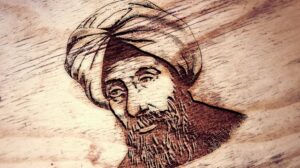
46th Anniversary of Islamic Revolution Reaffirms Iran’s Total Commitment to Palestine’s Freedom Struggle, writes Iqbal Jassat.
As a remarkable testament of the resilience of a people who pulled off one of the most outstanding popular socio-political changes in modern history, the Islamic Republic of Iran celebrated the 46th anniversary of the victory of its Islamic Revolution.
From Warsaw to Cairo and from Pretoria to capitals around the globe who have diplomatic relations with Iran, events marking the commemoration of the revolution signalled not only the strength and stability of the Islamic Republic, but also the strategic value of such ties.
Equally remarkable is that the bedrock of Iran’s worldview as encapsulated by the iconic leader of the revolution Imam Khomeini (RA) at the dawn of the historic revolution from a repressive and pompous western client-regime led by the Shah, to a popular mass-based Islamic Republic, has remained steadfast.
A resounding message confirming Iran’s unwavering commitment to Palestine’s freedom struggle – forming this bedrock – was heard throughout various corridors of power during the commemorations.
Far from being merely symbolic, it was noteworthy and strategic that Iran’s emissaries found it essential to honour the memory of the martyrs of Palestine’s resistance.
They emphasised that the ceasefire agreement between Hamas and the occupying Zionist regime marked a decisive victory for the resistance who courageously withstood fifteen months of horror, devastation and mass slaughter.
Despite the suffering and pain caused by the genocide and multiple forced displacements, the resilience, courage and steadfastness of Palestinians echoed the decades of struggle Iranians waged against Western powers and their fake “Peacock Thrones”.
Much to the dismay of Israel, who, along with the US and unelected Arab despots, had waged countless campaigns to impose regime change in Tehran, the 46th anniversary defined a pivotal moment in Iran’s history.
The successful revolution saw the emergence of an era based on independence, freedom and justice. As it traversed close to five decades of hostility, war and sanctions, Iranians can be proud of their enormous progress in various fields.
Studies by UNESCO confirm that there has been exponential growth in knowledge-based firms and start-ups, which it attributes as the result of heightened domestic demand combined with the multiplication of technology incubators and accelerators since the launch of the country’s first public innovation centres in 2015.
Undoubtedly the pace of growth in science and technology is at the behest of the state’s policies, unlike the stagnancy that existed during the era of the Shah.
In addition in a recent article by Italian economist Giancarlo Elia Valori, he was clear that with the passing of time since the Islamic Revolution, a big step has been taken towards the autonomy of various institutions in the country, including universities.
“Increasing the number and improving the quality of universities has been one of the main measures implemented since the first half of the 1980s”, wrote Valori.
Beyond this and against the background of Israel’s fixation on undermining and destroying Iran’s revolutionary gains, not excluding regime change, the Islamic Republic has developed a highly sophisticated drone and missile industry.
Given such malevolent hostilities, it is necessary to understand that Tehran regards drone and missile technology as crucial to resist and challenge both American and Israeli hegemonic ambitions within Iran and the wider Middle East region.
Iran’s successful revolutionary ousting of a well-armed American stooge has meant that the world’s so-called “superpower” – now in the hands of an erratic, unpredictable moron called Donald Trump – will do its damnest to undermine and reverse the gains of the Islamic Revolution.
Since Trump’s re-occupation of the White House, Washington has reinstated its “maximum pressure” policy on Tehran but also signalled a willingness to reopen nuclear negotiations.
However, during his commemoration speech, Iran’s Supreme Leader Ayatollah Ali Khamenei rejected any prospect of talks, stating, “Negotiating with such a government should not be done; it is neither wise, intelligent, nor honourable.”
“The Americans sit and redraw the map of the world— but only on paper, as it has no basis in reality,” he added.
Hamas leaders who participated in the 46th-anniversary celebrations congratulated Ayatollah Khamenei and expressed gratitude for Iran’s continued support.
According to a statement released by Khamenei’s website, the Iranian leader received Mohammed Darwish, chairman of Hamas’s Shura Council, Khalil al-Hayya, acting Hamas leader, and Zaher Jabarin, Hamas leader in the Occupied West Bank, among other officials.
Khamenei described the ceasefire agreement as a great achievement and called on the Muslim world and all supporters of the resistance to help reduce the pain and suffering of Palestinians.
To reaffirm Iran’s unconditional solidarity and support for Palestine’s freedom struggle, which has been a fundamental pillar of the country’s foreign policy since the 1979 Revolution, Khamenei made it clear: “The issue of Palestine is a main matter for us and Palestine’s victory is a definite issue.”
*Iqbal Jassat is an Executive Member of the MEDIA REVIEW NETWORK, Johannesburg.


